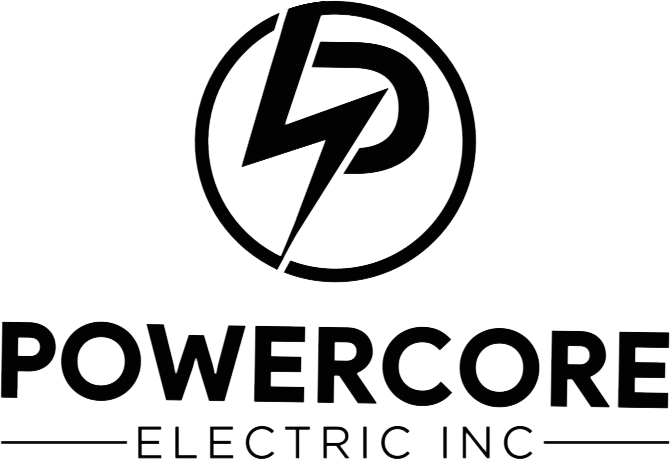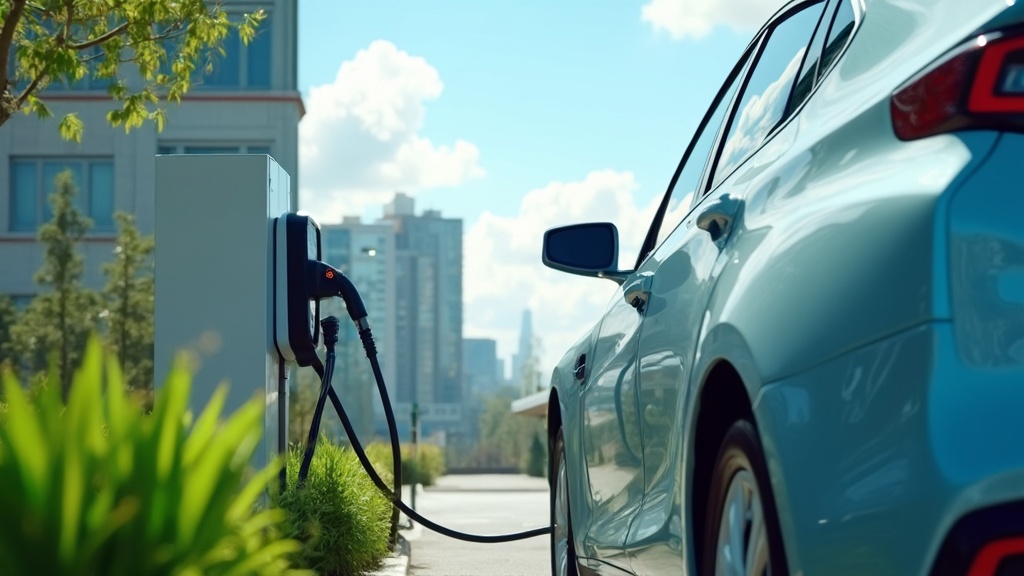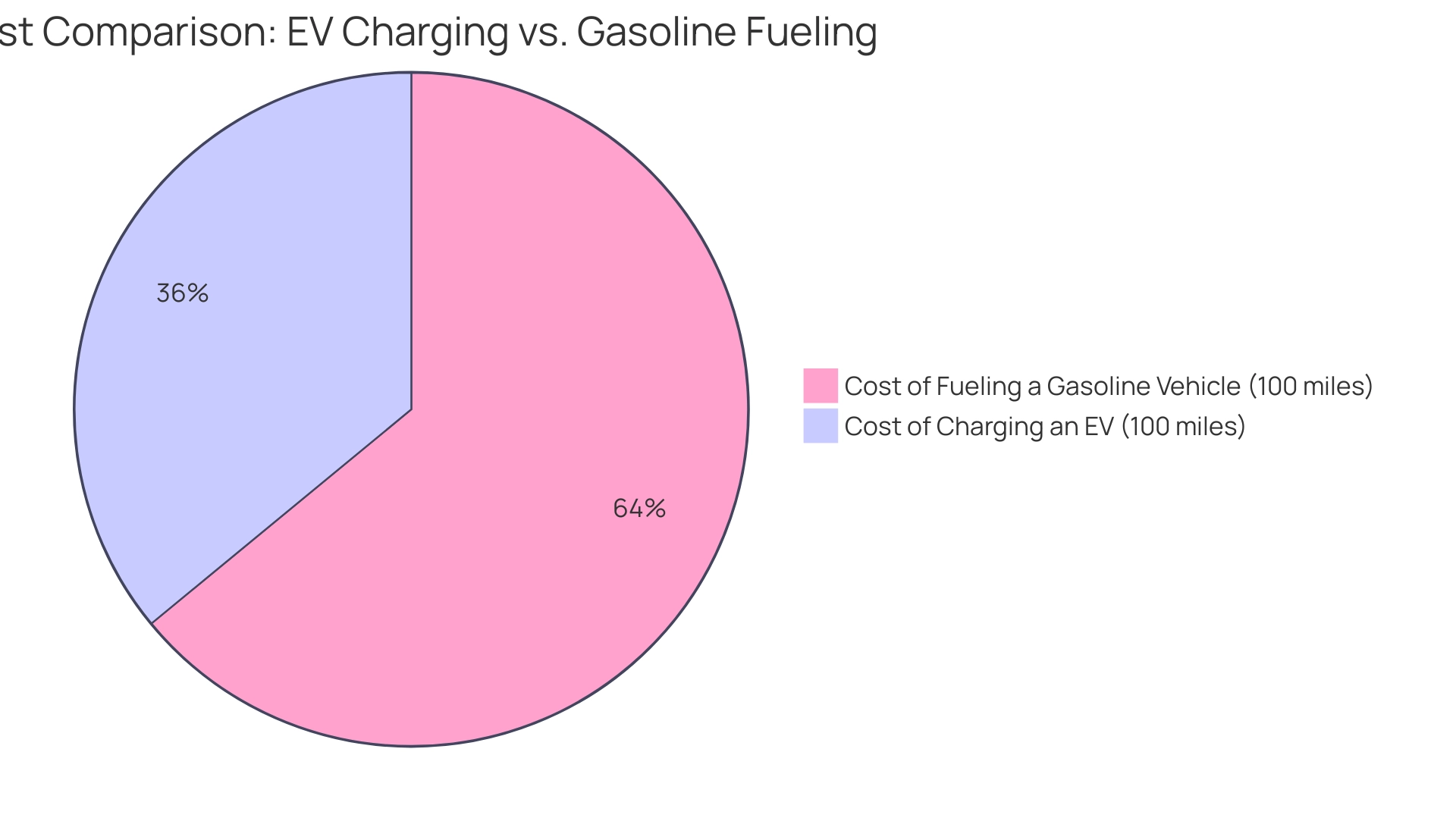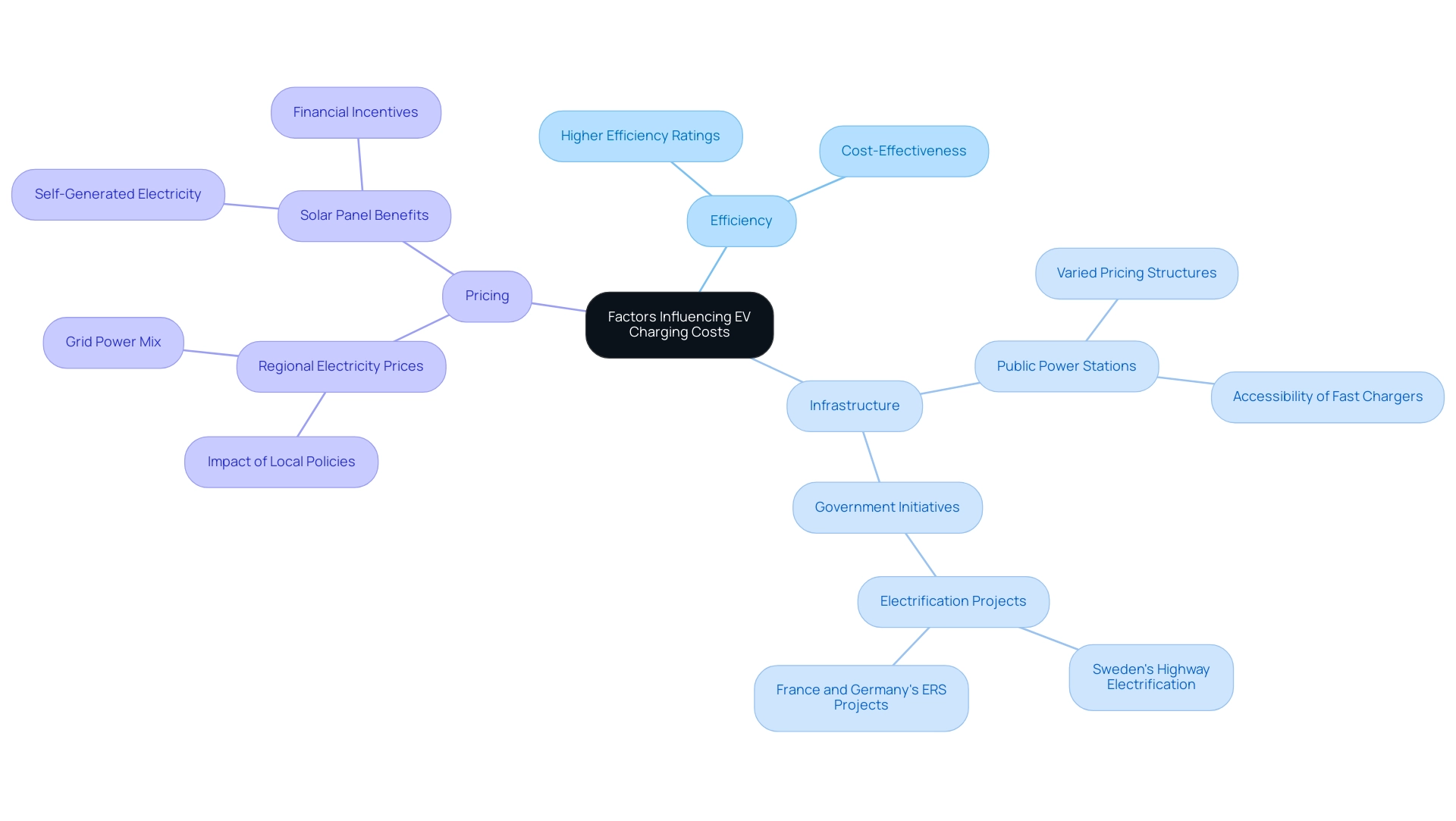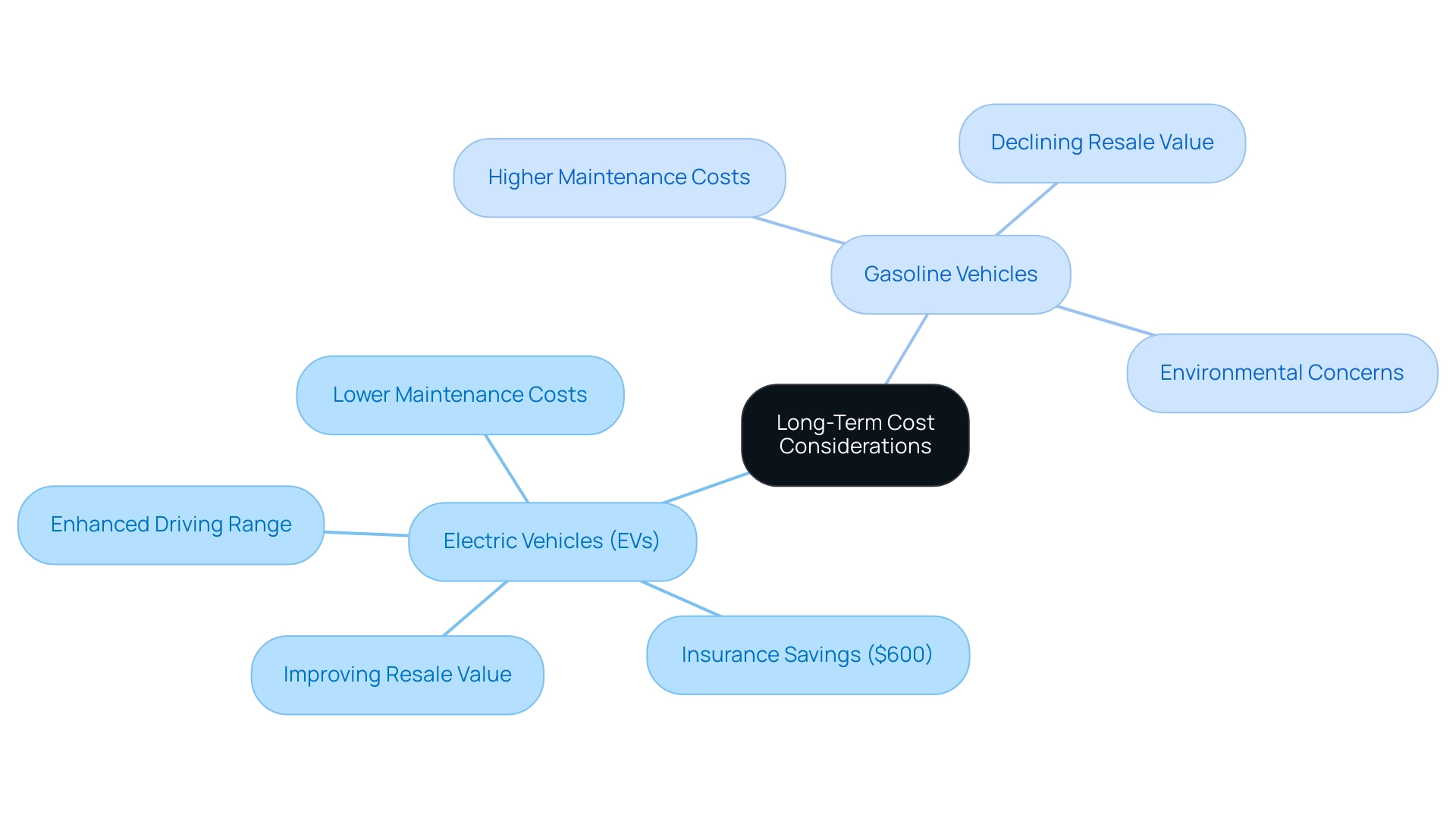Introduction
Navigating the world of electric vehicles (EVs) can feel overwhelming, especially when it comes to understanding the costs associated with charging compared to traditional gasoline fueling. With the rise of eco-conscious living, many homeowners are eager to explore how making the switch to an EV could not only benefit the planet but also their wallets.
From the savings on fuel to the potential for lower maintenance costs, the financial advantages of EV ownership are becoming increasingly clear. This article dives into the various factors that influence charging costs, the environmental impact of choosing electric over gasoline, and the long-term benefits of embracing this sustainable technology.
Whether you’re a seasoned EV owner or just contemplating the switch, there’s valuable information here to help guide the decision-making process.
Comparing the Costs of EV Charging and Gasoline Fueling
When it comes to comparing the expenses of EV charging vs gas cost for fueling electric vehicles (EVs) and gasoline cars, the differences can be quite eye-opening. For instance, in California, where the average electricity rate is about $0.20 per kilowatt-hour (kWh), charging an EV at home proves to be a wallet-friendly option. Typically, an EV consumes around 30 kWh to travel 100 miles.
This implies that for a 100-mile journey, you’d be considering an expense of roughly $6.00 for electricity. In contrast, filling up a gasoline vehicle can set you back about $10.68, given that gasoline prices are currently around $3.56 per gallon as of June 2024. This stark contrast highlights the potential for substantial savings when considering EV charging vs gas cost, especially for those who frequently drive long distances.
Furthermore, Powercore Electric Inc. provides EV station services that can assist in lowering expenses for EV owners. Many utility companies are stepping up to the plate by offering incentives and lower rates for energizing during off-peak hours, which can enhance cost efficiency. Moreover, EV owners should be aware of local power supply options, including free access available at various locations, which can further reduce expenses.
According to AAA statistics, the most costly gasoline markets include Hawaii and California, while the least expensive states for public electricity are Kansas and Missouri. Moreover, incorporating solar power solutions, like solar panels from Powercore Electric Inc., can greatly reduce electricity expenses for powering EVs. It’s clear that making the switch to electric could be a savvy financial decision for eco-conscious homeowners.
Factors Influencing EV Charging Costs: Efficiency, Infrastructure, and Pricing
When it comes to refueling your electric vehicle (EV), several factors can influence costs, especially in the context of EV charging vs gas cost. The efficiency of your EV is crucial in the discussion of EV charging vs gas cost; models with higher efficiency ratings use less energy to travel the same distance, making them more cost-effective over time. Additionally, the availability and kind of power supply infrastructure can significantly affect your expenses.
For instance, public power stations have varied pricing structures, and some may impose fees for utilizing their equipment. In the UK, there are over 13,000 fast chargers accessible, showcasing a varied infrastructure that meets different consumer requirements. This variety is especially significant for Long Beach renters seeking sustainable power solutions, as it emphasizes the expanding range of choices available to EV owners.
Moreover, the urgency for improved infrastructure is underscored by the statistic that the U.S. needs to add 700,000 Level 2 and 70,000 Level 3 chargers by 2025 to support the expanding EV market. Nations such as Sweden are electrifying highways by 2025, while France and Germany are examining similar initiatives, showcasing a worldwide commitment to improving EV charging alternatives.
Regional electricity prices also play a significant role in the discussion of EV charging vs gas cost, fluctuating based on local policies and the grid’s power mix. Areas with a higher share of renewable energy often enjoy lower rates, which benefits EV owners when considering EV charging vs gas cost. Eco-conscious homeowners can maximize savings by installing solar panels, enabling them to charge their vehicles with self-generated electricity.
This not only lowers expense costs but also aligns with sustainable values, creating a win-win for both your wallet and the planet. Powercore Electric Inc. provides extensive insights on solar panels, battery backups, and EV station solutions tailored to your needs, including Tesla home chargers that can enhance your experience. Additionally, government programs may provide financial incentives for solar energy adoption, further enhancing your savings.
As we enter 2024, comprehending these factors is crucial for navigating the changing environment of electric vehicle refueling.
Environmental Impact: EVs vs. Gasoline Vehicles
When it comes to environmental impact, electric vehicles (EVs) shine brightly compared to traditional gasoline vehicles. EVs operate with zero tailpipe emissions, which directly translates to improved air quality and a significant reduction in greenhouse gas emissions. However, the environmental benefits of EVs are closely tied to the source of electricity used for charging.
In regions like Long Beach, where solar power solutions are becoming increasingly accessible, such as Tesla home chargers and battery options, the sustainability advantages of EVs are amplified. By utilizing solar power from your own panels or through programs offered by local providers like Powercore Electric Inc., you can ensure that your EV is charged with clean resources.
Gasoline vehicles, while often seen as convenient, are major contributors to air pollution and carbon emissions. Recent studies indicate that as we approach 2024, the environmental impact statistics are leaning more favorably towards EVs. For instance, the lifecycle emissions of lithium iron phosphate (LFP) batteries are notably lower—about one-third less—than those of high-manganese cobalt (NMC) batteries.
This highlights the significance of battery chemistry in the overall emissions equation, particularly when combined with renewable power sources like solar.
To further enhance the environmental advantages of EVs, strategies such as improving efficiency in battery production, increasing recycling efforts, and sourcing low-carbon electricity are essential. These approaches can significantly reduce the emissions associated with battery manufacturing, as highlighted in the case study titled “Battery Chemistry and Lifecycle Emissions,” which illustrates how different battery chemistries impact lifecycle emissions.
Furthermore, Long Beach tenants can benefit from a range of government initiatives and incentives aimed at encouraging the use of solar power and electric transportation. These programs can provide financial assistance and make the transition to sustainable energy solutions more accessible.
As Austin Kampen aptly expressed,
It wouldn’t really matter to us if it was green or not, because it seems kind of out of reach for us.
This sentiment resonates with many homeowners who might feel overwhelmed by the complexities of green technology. However, by opting for an EV and integrating solar power solutions into your home, you take a meaningful step towards reducing your carbon footprint and fostering a cleaner environment.
You not only contribute to a healthier planet but also embrace a lifestyle that aligns with sustainable practices, thanks to the innovative offerings from Powercore Electric Inc., making a positive impact on your community.
Long-Term Cost Considerations: Maintenance and Resale Value
When considering long-term expenses, electric vehicles (EVs) excel in EV charging vs gas cost when compared to their gasoline counterparts. Thanks to their simpler mechanics—with fewer moving parts and no need for oil changes—EVs typically demand less maintenance over their lifespan. This can translate into significant savings for you, the homeowner, making the switch to electric not only environmentally friendly but also wallet-friendly.
In fact, by comparing car insurance quotes from multiple providers, you could save up to $600, further enhancing the financial benefits of EV ownership. Numerous EV producers offer guarantees that include battery replacements for multiple years, providing reassurance and further lowering possible expenses.
Now, let’s talk about resale value.
Historically, EVs have seen steeper depreciation rates, but that narrative is changing. Laurance Yap, Senior Manager at GreenCars, notes that concerns about significantly higher repair costs for EVs are largely unfounded, which adds credibility to the discussion on maintenance costs. As these modes of transportation grow in popularity and technology continues to advance, more consumers are willing to pay a premium for used EVs, especially those that boast good battery health and desirable features.
In contrast, gasoline cars are experiencing a decline in resale value, driven by rising environmental concerns and the global shift towards electrification.
Additionally, the driving range of electric cars has improved significantly, with models like the 2019 Nissan Leaf achieving 226 miles per charge compared to just 73 miles in 2011. This enhancement allows EV drivers to charge at home for 92% of their needs, which reduces overall fuel costs and adds convenience when considering EV charging vs gas cost.
All these elements create a more promising financial outlook for EV owners.
With ongoing advancements and heightened consumer interest, the long-term advantages of owning an electric automobile are becoming increasingly clear.
Charging Options: Home Charging vs. Public Charging Stations
When it comes to power options for your electric auto (EV), locating the right match for your lifestyle is crucial. Home refueling stands out as the most convenient and cost-effective solution, allowing you to simply plug in your vehicle overnight and wake up to a full charge, often at a lower electricity rate. Installing a Level 2 home charger from Powercore Electric Inc. can be a game changer, drastically reducing power-up time and making it a practical choice for your daily routine.
In fact, with the right setup, you could save between $1,000 and $1,400 each year by replenishing at home, which illustrates the advantages of EV charging vs gas cost.
However, public refueling stations have their place too, especially for longer road trips. They offer flexibility but can differ significantly in price and availability. Some fast chargers at these stations offer the convenience of a quick top-up, but be prepared for potential premium rates, especially during peak hours.
Danny D., an electrical contractor with years of experience, emphasizes the importance of understanding these dynamics, stating, ‘For the past few years, I have had the pleasure of working with Shafnisky Electric as an electrical contractor for my place of business.’ This insight emphasizes the importance of professional installation and the intricacies of power supply options, highlighting how essential it is to evaluate both residential and public power solutions in the context of EV charging vs gas cost to ensure they correspond with your driving habits and budget.
As you consider your options, take into account that the average installation expense of a Level 2 home charger in 2024 is a valuable investment when you reflect on the convenience it offers. Powercore Electric Inc. provides professional installation services that guarantee your home setup is optimized for efficiency and safety. Additionally, with new EV models showcasing remarkable MPGe ratings—varying from 100 to 120, with some exceeding the 140s—you’ll be aiding in a more sustainable future while also managing your costs effectively.
By understanding the various pricing models for EV power supply, such as pay-per-use and dynamic pricing, you can further enhance your financial efficiency.
For more information on our services, including solar panels, battery backups, EV power stations, and general electrical services, feel free to contact Powercore Electric Inc. at ryan.serrano@powercoreinc.net or T: (916) 699-8778. Remember, EV charging is easier than you think, and we’re here to help you navigate the landscape of home and public charging, ensuring you make the most of your EV ownership experience.
Conclusion
Making the transition to an electric vehicle (EV) presents a multitude of advantages, particularly when it comes to cost savings and environmental benefits. As highlighted throughout this article, charging an EV can significantly reduce fuel expenses compared to traditional gasoline vehicles. With factors such as local electricity rates, charging efficiency, and infrastructure playing crucial roles, homeowners can find various ways to optimize their charging costs and enhance their savings.
Additionally, the environmental impact of EVs is a compelling reason to consider this switch. By operating with zero tailpipe emissions and leveraging renewable energy sources like solar power, EV owners contribute to cleaner air and a healthier planet. This aligns with broader goals of sustainability, making the choice not only financially wise but also socially responsible.
Looking ahead, the long-term financial benefits of owning an EV are becoming increasingly clear. Lower maintenance costs, improved resale value, and the convenience of home charging create a favorable outlook for potential buyers. As technology advances and the EV market expands, embracing electric vehicles can lead to substantial savings and a more eco-friendly lifestyle.
In conclusion, the shift towards electric vehicles is more than just a trend; it represents a meaningful step towards a sustainable future. By understanding the costs, environmental impacts, and long-term benefits associated with EV ownership, homeowners can make informed decisions that not only benefit their wallets but also contribute positively to the community and the planet. Embracing this change is a powerful way to support the transition to greener technologies and a cleaner environment for generations to come.
